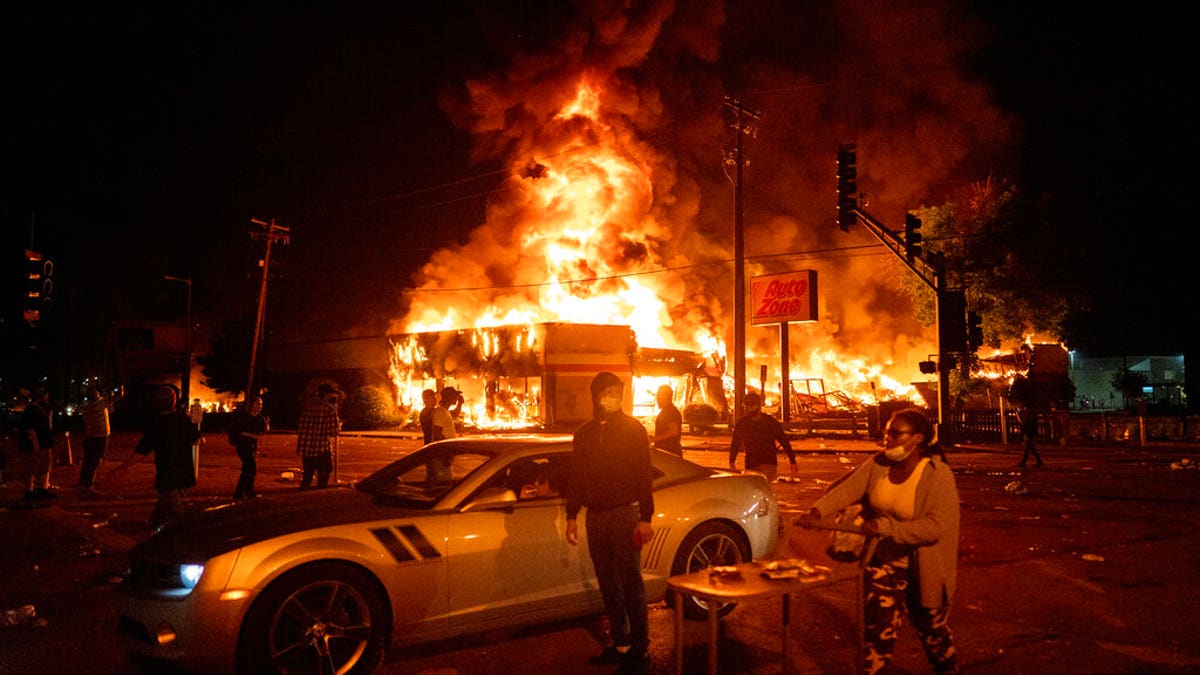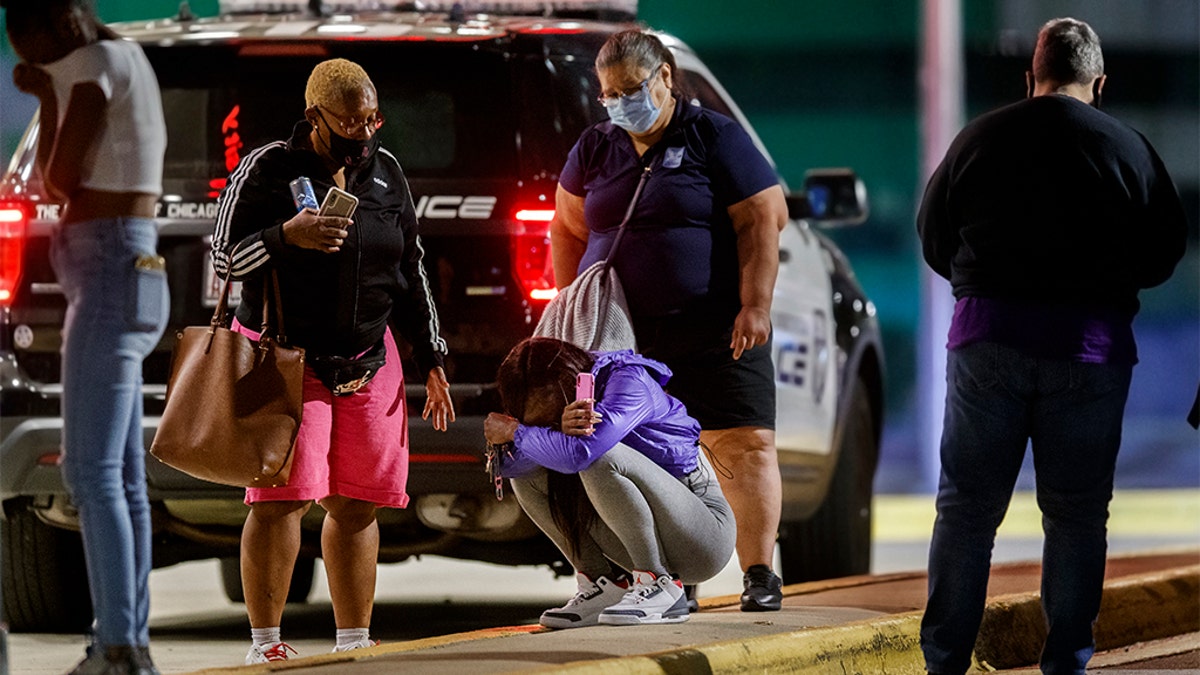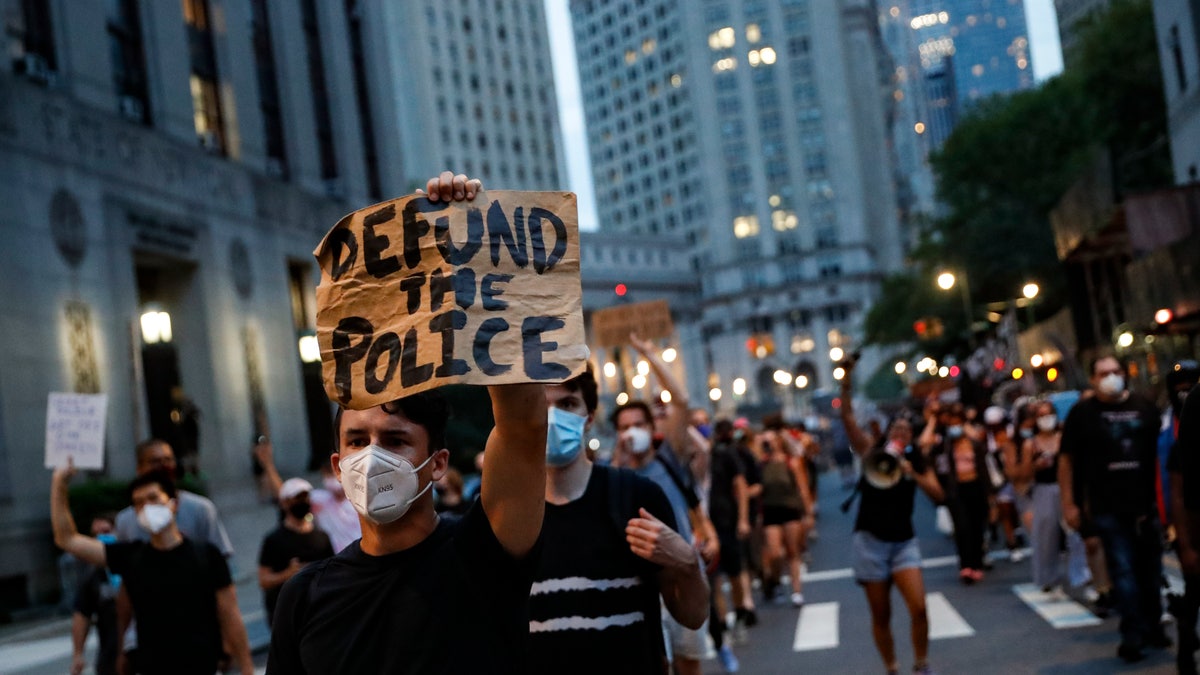Fox News Flash top headlines for September 29
Fox News Flash top headlines are here. Check out what's clicking on Foxnews.com.
Violent crime -- particularly shootings and homicides -- is spiking across major U.S. cities in what one law professor has dubbed the "Minneapolis effect."
Minneapolis residents have expressed concerns with an increased number of shootings after the city council voted to move $1.1 million in funding for the police department toward other safety and health services following the May 25 death of George Floyd in police custody.
"I think what Minneapolis is seeing is the same thing we’re seeing all over the country," Paul Cassell, a professor at S.J. Quinney College of Law at the University of Utah, told Minneapolis news outlet WCCO. "We’re seeing a reduction in proactive policing, and as a result of that homicide and shootings are skyrocketing all over the country."

An AutoZone store burns as protesters gather outside of the Third Precinct in Minneapolis Thursday, May 28, 2020. (Mark Vancleave/Star Tribune via AP)
Cassell explained the phenomenon in a Sept. 10 research paper titled "Explaining the Recent Homicide Spikes in U.S. Cities: The 'Minneapolis Effect' and the Decline in Proactive Policing."
"Recently, major cities across the country have suffered dramatic spikes in homicides. These spikes are remarkably large, suddenly appearing and widespread. At this rate, 2020 will easily be the deadliest year in America for gun-related homicides since at least 1999, while most other major crime categories are trending stable or slightly downward," the abstract reads.
MINNEAPOLIS RESIDENTS SAY CRIME IS RISING AFTER FUNDING SHIFT
Cities like Chicago, New York City, Philadelphia, Milwaukee and Detroit have seen spikes in homicides, aggravated assault and gun assaults this year, according to a July study by the nonpartisan National Commission on COVID-19 and Criminal Justice (NCCCJ).
While property and drug offenses in 2020 decreased, in part due to lockdowns, commercial burglary spiked 200% in May amid protests after Floyd's death; the homicide rate "increased significantly from the end of May through the end of June," led by Chicago, Philadelphia and Milwaukee, researchers found.

A woman kneels on the ground outside the University of Chicago Medicine's Comer Children's Hospital where an 8-year-old girl was taken after being killed in a shooting. (Armando L. Sanchez/Chicago Tribune/Tribune News Service via Getty Images)
Aggravated assault increased 35% between late May and the end of June, led by Louisville, Nashville and Detroit, according to the NCCCJ. Additionally, 17 cities recorded a surge in gun assaults at the end of May with Chicago at the top of the list, but the increase was "not substantially greater than that recorded" in 2019.
That data was published before more protests and riots broke out in August and September after the police shooting of Jacob Blake and a Jefferson County, Ky., grand jury verdict that indicted one of three officers involved in the shooting death of Breonna Taylor on $15,000 bail.
VIOLENT CRIME IN US CITIES SURGES AMID PANDEMIC, PROTESTS: 'PERFECT STORM O DISTRESS'
A number of the major cities mentioned have shifted police funding toward other community services to meet protesters' demands for alternative policing options in hopes of reducing police violence against minorities.
New York City Mayor Bill de Blasio cut the New York Police Department's budget by $1 billion; Los Angeles approved a $150 million police budget cut; Philadelphia approved a $33 million police budget cut in June; Portland, Ore., cut $16 million from its police budget; and a number of other major cities have approved similar reductions.
Cassell notes in his research paper that "reduced proactive policing (sometimes referred to in the academic literature 'de-policing') is the most logical explanation for the recent homicide spikes."

A demonstrator holds a sign that reads "Defund the police" during a protest march in support of the Black Lives Matter movement and other groups, Thursday, July 30, 2020, in New York. (AP Photo/John Minchillo)
He calls the phenomenon "the Minneapolis effect."
"In the wake of the antipolice protests surrounding George Floyd’s death, less policing has occurred," he wrote. "...These reductions have resulted from the protests or other attacks on police, as police have (for various reasons) pulled back from aggressive efforts to combat gun crimes. Likewise, law enforcement capabilities have been diminished by reduced funding and other setbacks (such as increased retirements due to demoralization)."
CHICAGO POLICE TRYING TO COMBAT VIOLENCE LIMITED BY POLITICS-DRIVEN POLICY: FORMER CHIEF
He added that "the consequence of reducing law enforcement activity directed against gun violence has been, perhaps unsurprisingly, an increase in gun violence."
Cassell concluded that while more research needs to be done on the "Minneapolis effect" and its causes, a general "reduction in law enforcement efforts targeted at firearms crimes has led, perhaps predictably, to an increase in firearms crimes."
"...The nation needs to consider all possible responses to this tragedy, including responses that involve increased and proactive law enforcement efforts directed at combatting gun violence," he wrote.













































